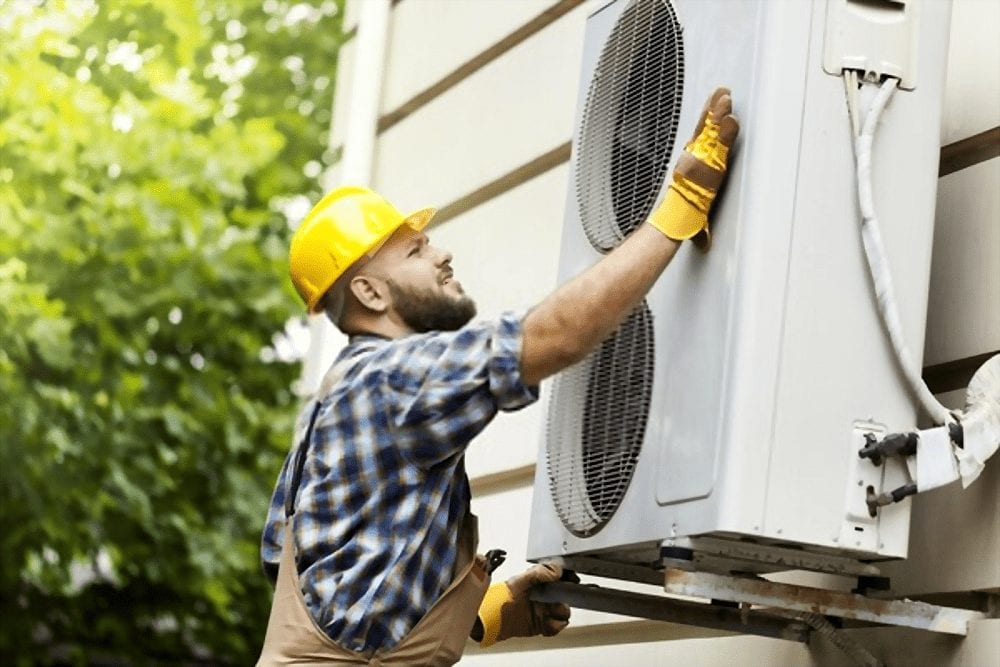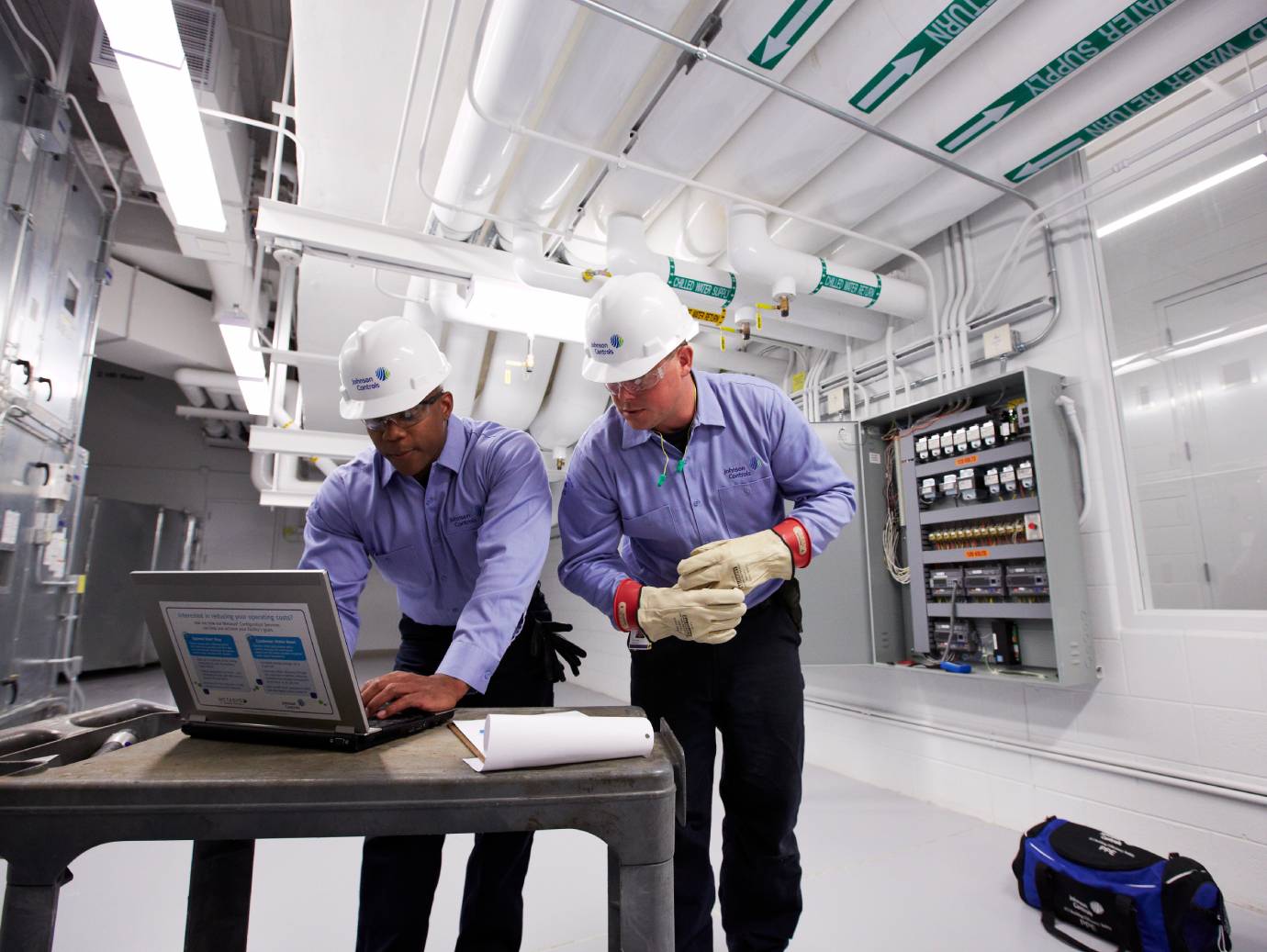Top Reasons to Schedule heat pump replacement ooltewah tn
Picking Between a Heatpump and Heating System: Trick Considerations for Your Cooling And Heating Needs
When examining home heating choices for heating and cooling needs, the choice in between a warmth pump and a heater can be complicated. Each system provides distinct benefits customized to specific climates and energy effectiveness goals. Comprehending these distinctions is essential for making an informed selection. Trick elements such as installation expenses and environmental impact additionally complicate the choice process. Which choice absolutely straightens with one's comfort and sustainability choices? The complying with sections will explore these factors to consider thoroughly.
Recognizing Warmth Pumps: Exactly How They Function and Their Benefits
While numerous house owners consider different heating alternatives, recognizing exactly how heatpump function and their benefits can considerably influence their decision. Warm pumps run by moving warm as opposed to producing it. In the winter months, they remove warmth from the outside air or ground and transfer it inside, while in the summertime, they reverse this procedure, cooling the home by removing heat outside. This dual functionality makes them versatile for year-round environment control.One of the key benefits of heat pumps is their energy performance. They make use of considerably less electrical power contrasted to typical heater, possibly causing lower energy expenses (ductless mini splits). Furthermore, heatpump have a smaller sized carbon impact, making them an eco-friendly choice. They additionally require less maintenance than traditional systems, contributing to lasting price financial savings. In general, understanding the mechanics and advantages of warmth pumps can assist homeowners make informed decisions concerning their heating and cooling requirements
Checking Out Heaters: Types, Procedure, and Advantages
Heating systems come in numerous types, including gas, electrical, and oil designs, each with unique operational mechanisms. Understanding these distinctions is necessary, as they impact performance and home heating performance. Additionally, heating systems offer many benefits, such as constant warmth outcome and dependability in cooler climates.
Types of Heating systems
Home heating systems can vary significantly in layout and operation, with heating systems being a preferred choice amongst property owners. There are several sorts of furnaces, each using different gas resources and technologies. Gas furnaces prevail, leveraging gas to produce warmth successfully. Electric heaters, on the various other hand, utilize electrical resistance to create warmth, usually favored for their uncomplicated installment. Oil furnaces, while much less typical, are reliable in locations with limited gas access (furnace replacement). In addition, condensing heaters maximize power performance by reusing and catching exhaust gases. Each type runs via a system of warmth exchangers and ductwork to disperse warm air throughout a home. Recognizing the differences between these heating system types is vital for informed heating and cooling choices
Benefits of Heating systems
For property owners looking for trustworthy warmth throughout cold months, the advantages of heating systems are significant. Furnaces offer regular heating, making sure even temperatures throughout the home. They are particularly reliable in severe chilly, frequently surpassing warmth pumps in frigid conditions. Different kinds, including gas, electric, and oil heating systems, use flexibility to satisfy varied requirements and preferences.Furnaces likewise have a tendency to have lower preliminary installation costs compared to heatpump, making them an extra easily accessible choice for lots of. Their robust design adds to a longer life expectancy, with lots of systems lasting over 15 years with correct upkeep. Additionally, contemporary heating systems are commonly equipped with sophisticated technology for enhanced effectiveness, which can bring about lowered energy bills. In general, furnaces continue to be a dependable selection for efficient home heating.

Energy Performance: Contrasting Warm Pumps and Furnaces
When comparing power efficiency between heatpump and furnaces, the Seasonal Energy Efficiency Proportion (SEER) plays a vital role in establishing performance. In addition, a functional price analysis discloses the long-term monetary ramifications of each system. Comprehending these variables can direct homeowners in making educated choices about their heating options.
Seasonal Energy Effectiveness Ratio
Power performance plays a necessary function in the decision-making procedure between heatpump and heating systems, particularly when taking into consideration the Seasonal Energy Performance Ratio (SEER) This metric measures the cooling effectiveness of heat pumps over a whole cooling period, supplying a standard means to review efficiency. Greater SEER ratings indicate greater energy effectiveness, translating to lower power consumption and decreased utility bills. In contrast, furnaces are typically evaluated utilizing the Annual Fuel Usage Effectiveness (AFUE) ranking, which shows home heating performance. When comparing these 2 systems, homeowners must prioritize SEER rankings for warmth pumps, as they straight impact total energy cost savings and environmental sustainability. A thorough understanding of SEER can notably affect the long-term fulfillment and cost-effectiveness of the picked heating and cooling option.
Functional Cost Analysis
Understanding the functional expenses connected with heatpump and heaters is essential for homeowners reviewing their options. here are the findings Heatpump generally provide greater power efficiency, transforming electrical power into heat with marginal waste. This results in reduced monthly energy bills, especially in moderate climates. On the other hand, typical heating systems, particularly gas designs, might have reduced in advance costs but can sustain greater functional expenses in time because of sustain costs and performance ratings.Moreover, heatpump can work as both home heating and cooling down systems, possibly reducing the need for different heating and cooling units. While first financial investments for heatpump might be greater, their lasting financial savings in energy performance can make them a much more cost-effective selection for several families. Cautious evaluation of regional energy rates is important to identify the very best choice.
Setup Prices: What to Anticipate for Each Heating Unit
Installation expenses for heating systems can vary substantially in between warmth pumps and heating systems, affecting house owners' decisions. Heatpump generally have greater in advance setup costs, typically ranging from $3,500 to $8,000, relying on the device size and intricacy of installment. This includes the outdoor device, interior handling system, and required ductwork alterations. Conversely, heaters tend to have lower first prices, balancing in between $2,500 and $6,000, which can be appealing for budget-conscious homeowners. Installment costs can increase if substantial ductwork is required.Moreover, the selection of gas type for furnaces-- all-natural gas, gas, or electrical-- can also affect setup costs. While warm pumps supply energy effectiveness, their first financial investment might prevent some go to this website purchasers. Inevitably, reviewing installment expenses along with long-term savings and performance will certainly help homeowners in making educated decisions about their furnace.
Climate Considerations: Which System Carries Out Much Better in Your Location
Just how do climate problems influence the performance of heating unit? The efficiency of warm pumps and furnaces can vary significantly depending on the regional environment. In moderate environments, heat pumps excel by efficiently moving heat from the outside air, making them an energy-saving choice. Nevertheless, their efficiency reduces in extremely chilly temperature levels, where they might have a hard time to remove enough warmth. Conversely, heaters, particularly gas models, offer reliable and constant heat despite outdoor conditions, making them preferable in cooler regions.In locations that experience milder wintertimes, warm pumps can run effectively year-round, supplying both heating & cooling. In contrast, areas with rough winters months usually gain from the robustness of furnaces. Inevitably, comprehending the neighborhood climate is important when choosing in between a heatpump and a heater, as it directly impacts their functional efficiency and total efficiency.
Upkeep Demands: Long-Term Look After Warm Pumps vs. Furnaces
While both heatpump and furnaces require regular upkeep to guarantee peak efficiency, their specific needs and care routines vary considerably. Heating systems typically need much less regular focus, with yearly evaluations being sufficient to look for gas leakages, tidy filters, and examine general capability. Their simpler layout commonly enables for straightforward repairs.In comparison, heatpump demand biannual maintenance as a result of their twin function in home heating and cooling. This consists of cleaning coils, inspecting refrigerant levels, and making sure that both the interior and outside systems work at their best. Additionally, heatpump maintenance commonly includes even more detailed components, making professional maintenance essential.Neglecting upkeep can bring about reduced efficiency and enhanced energy prices for both systems. Eventually, property owners must think about these long-term treatment requirements when selecting in between a heat pump and a heating system, as positive maintenance can expand the life expectancy and performance of either system considerably.
Environmental Influence: Selecting a Sustainable Home Heating Choice
The environmental effect of heating unit is an essential assessment for homeowners seeking lasting options. Heatpump are normally much more energy-efficient than standard furnaces, as they move heat as opposed to produce it, considerably decreasing carbon emissions. By making use of eco-friendly power resources, such as air-source you can try this out or geothermal heatpump, house owners can further decrease their environmental footprint.On the other hand, gas heating systems emit greenhouse gases and add to air contamination, though they typically supply greater heat result. Improvements in technology have led to the advancement of high-efficiency heaters that lessen emissions.Ultimately, choosing a home heating system entails evaluating effectiveness versus environmental influence. Property owners are urged to review local energy resources and motivations for sustainable systems, guaranteeing a choice that straightens with both individual comfort and environmental responsibility. The decision impacts not just immediate comfort however additionally long-term sustainability and ecological health.
Frequently Asked Questions
For How Long Do Warmth Pumps and Furnaces Commonly Last?
The lifespan of warm pumps normally ranges from 15 to twenty years, while furnaces can last in between 15 to thirty years. Normal upkeep considerably influences their durability and efficiency in giving heating solutions.
Can I Make Use Of a Warm Pump in Exceptionally Cold Climates?
Heatpump can run in very cool climates, yet their efficiency reduces as temperatures decline. In such conditions, additional heating resources might be necessary to maintain comfy interior temperature levels and ensure peak performance.

What Is the Noise Level of Warm Pumps Versus Furnaces?
The noise degrees of heatpump and heaters differ substantially. Typically, warmth pumps run more quietly than typical furnaces, making them better for those sensitive to sound, while furnaces might generate louder operational sounds throughout heating cycles.
Are Heat Pumps Suitable for Both Cooling And Heating?
Warmth pumps are without a doubt suitable for both heating and cooling (ductless mini splits). They operate by transferring warmth, supplying reliable temperature level control year-round, making them a flexible choice for house owners seeking an all-in-one HVAC service
What Dimension Heating Unit Do I Required for My Home?
Identifying the suitable dimension heater for a home requires evaluating elements such as square footage, insulation high quality, local environment, and the home's format. Consulting a specialist can ensure a precise evaluation and perfect convenience. Heat pumps usually offer greater energy effectiveness, transforming electrical energy into warmth with minimal waste. In moderate environments, warmth pumps stand out by efficiently moving warmth from the outdoors air, making them an energy-saving option. On the other hand, heating systems, particularly gas versions, offer reliable and constant heat regardless of outdoor conditions, making them more effective in chillier regions.In areas that experience milder winters, warmth pumps can operate efficiently year-round, giving both home heating and air conditioning. Warm pumps are generally extra energy-efficient than standard heating systems, as they move warm rather than produce it, significantly lowering carbon exhausts. By utilizing eco-friendly power sources, such as air-source or geothermal warm pumps, home owners can better decrease their environmental footprint.On the various other hand, natural gas heating systems discharge greenhouse gases and add to air contamination, though they usually supply greater heat output.